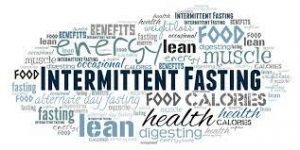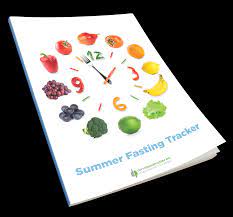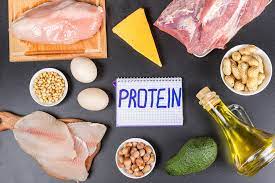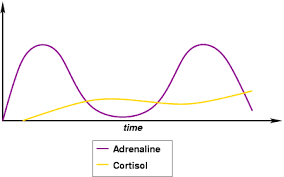Should You Consider Intermittent Fasting?
The Case Against Intermittent Fasting
The concept of Intermittent Fasting is incredibly popular these days. Some would even call it a trend.
But many exercises, nutrition, and medical professionals aren't all that impressed by the lifestyle technique. They argue that there are downsides to  intermittent fasting, limiting its potential benefits and that it may fall out of favor shortly.
intermittent fasting, limiting its potential benefits and that it may fall out of favor shortly.
These professionals do recognize that rearranging one's eating patterns in such a manner can encourage weight loss but argue that for many people that it may be unsustainable, there are non-negligible health risks, and the practice holds no unique benefit for those looking to maintain or enhance their athleticism.
Little Agreement on the Correct Way to Engage in Intermittent Fasting
One of the things about Intermittent Fasting is that it seems that everyone that recommends Intermittent Fasting, whether they be professionals or simply advocates, has their own particular take on the regimen.
Some call for fasting during daylight, others recommend eating only during a four or eight-hour period of the day, and still, others recommend taking an entire day off from eating. There are some proponents that consider intermittent fasting to mean only eating when you indeed are hungry.
Just as Intermittent is interpreted in various ways, so is Fasting. Some people recommend going entirely without food during the fast. Others believe that you should only drink protein shakes or stick to berries and veggies during the fasting portion of your day. As you can see, there is no clear consensus regarding what Intermittent Fasting really means.
In a global society, there are many religions and cultures that engage in fasting as a spiritual act, but among animals, there is little evidence that other mammals fast for any reason except for illness. In many cases, sick animals will even eat particular plants like grass to purge their systems.
Intermittent Fasting is Not a Natural Animal Behavior
The core basis for Intermittent Fasting as a practice originally comes from animal research. There is evidence that Intermittent Fasting can be good for male animals in some ways because it enhances reproductive characteristics, but for female animals, the same process can limit fertility.
Intermittent Fasting in animals studies induced the females to sleep less, become unnecessarily alert, and limit their menstruation ability. Researchers hypothesize that these changes take place because their bodies emphasize traits that will aid them in seeking food.
Health Issues Related to Intermittent Fasting
Although there are many that firmly stand behind Intermittent Fasting, there are other people that have experienced temporary physical and psychological symptoms from their use of the technique. The following are some issues that people that undergo Intermittent Fasting experience:
Sleeping issues, predominantly in women. These issues are caused primarily by the stimulation of hypocretin neurons which encourage the body and mind to stay awake.
Others admit to highly increased coffee consumption to deal with their fasting. This overwhelming use of coffee can lead to circadian rhythm issues, Hormone Imbalance, and significant adrenal fatigue.
Many dieters experience an increased fixation on the foods that they deny themselves. This also leads to a component increase in anxiety.
Women often experience various Hormone Issues from extended Intermittent Fasting, including menstrual irregularities, fixation on self-image, changes in metabolic activity, and acne.
It should be noted these symptoms are highly associated with the severity of Intermittent Fasting and that other, more limited forms of Intermittent Fasting will produce fewer of these negative symptoms. Also, these issues are more related to long-term Intermittent Fasting, and specific diet plans may be able to usefully utilize Intermittent Fasting as a means to lose weight.
Those who argue against Intermittent Fasting believe that other methods can more effectively extend longevity in the long term and can help enhance muscle mass and energy simultaneously. The following are five reasons why Intermittent Fasting may not be the lifestyle that you're looking for:
One: Peak Cognitive and Physical Performance Rely on Regular Meals
The Human body relies on normalized feeding patterns to sustain energy and physiological capacity. Intermittent Fasting can lead to Hormone Imbalance issues which lead to fatigue, deteriorated focus, and changes in base hormone patterns. Also, the body relies on amino acids to sustain and build muscle, and if you drain your body of these amino acids, your body may start to break down muscle to meet the needs of the rest of the body.
Intermittent Fasting in the short term appears to have a balancing impact on these same factors, however and may be beneficial as a means to lose weight and reset the body. In the initial period of Intermittent Fasting, men tend to experience increased cognitive function and boosted alertness, and there is even evidence that the experience promotes healthier insulin production. As we mentioned, these benefits are less pronounced among women and have potentially adverse side effects.
weight and reset the body. In the initial period of Intermittent Fasting, men tend to experience increased cognitive function and boosted alertness, and there is even evidence that the experience promotes healthier insulin production. As we mentioned, these benefits are less pronounced among women and have potentially adverse side effects.
For men that are overweight, Intermittent Fasting can be a highly effective means to re-balance the body, especially in the short term, but for men that are already thin and looking to promote enhanced athletic ability, the benefits of Intermittent Fasting are limited.
This is primarily because asymmetrical eating patterns can lead to blood sugar issues and insulin spikes. Over time, this can cause the circadian rhythm, neurotransmitter activity, and hormone production to get out of sorts.
Many nutritionists and fitness experts recommend using a Paleolithic diet to accentuate many of the positive aspects of Intermittent Fasting while avoiding the negative aspects. A Paleolithic diet encourages healthy Insulin Balance and provides a dependable stream of amino acids that aid metabolism, cognition, and muscle building.
A diet that revolves around healthy fats and high protein while limiting carbohydrates, with small meals consumed five to six times per day, is one of the best ways to keep your body working and your metabolism pumping. This helps energy levels, muscle health, and cognitive ability while keeping blood sugar in check and promoting enhanced longevity.
Two: Regular Protein Consumption Necessary For Muscle Building Protein Synthesis
It is essential to recognize that there is a significant difference between building muscle and sustaining muscle. You can lose muscle mass if you don't get your body the protein it needs. It is very easy to design an Intermittent Fasting diet that prevents loss of muscle mass, but the issue is that Intermittent Fasting is not an ideal method for growing and enhancing muscles.
Again, if you are interested in losing weight, Intermittent Fasting may be a valid option, but if you are looking to enhance lean muscle and longevity from a healthy weight, other options are likely more beneficial. There is a body of research out there that explains precisely why Intermittent Fasting is not ideal for muscle development.
There are a lot of chemical processes that happen when your body builds muscles, and there are many essential ingredients to make it happen. To build muscle optimally, the body needs a steady stream of hormones that promote anabolic activity, proteins and amino acids which supply the body's  anabolic needs, and strength training that stimulates the use of these ingredients. If every ingredient is not available, it makes it very difficult to build muscle.
anabolic needs, and strength training that stimulates the use of these ingredients. If every ingredient is not available, it makes it very difficult to build muscle.
A study released in 2010 exemplifies this clearly. In this study, male participants were placed on a caloric-restriction diet but still obtained high levels of protein each day1.5 grams per kilogram by weight. Despite getting the necessary protein to build muscle, they still experienced a decline in muscle-building power because they weren't consuming enough calories.
Overall, this led to a loss of one kilogram of lean muscle mass in ten days. If the body isn't getting all the nutrients it needs, it will convert consumed protein into other products to meet the body's needs to the deficit of the muscles.
Other studies show the benefits of multiple modest meals per day. In one particular study, athletic men performed anaerobic lower body exercise routines and consumed proteins in three experimental patterns dependent upon their group.
One group took two doses of forty grams every six hours, a second group took twenty-gram doses four times daily every three hours, and the third group took a ten-gram dose every hour and a half eight times daily. The group that experienced the most enhanced protein utilization was the group that took twenty-gram doses.
A final study examined how taking protein before bed affected protein synthesis. Researchers found that young males that consumed forty grams of protein before falling asleep experienced a 25% boost in protein utilization. In this study, participants worked out in the evening, consumed protein, and went to bed. The benefits continued to take place even overnight.
The opposite result is seen in studies mimicking the effects of Intermittent Fasting. In one study conducted over the course of three days, young males ate twice per day with a twelve-hour space between meals. Instead of building muscle, these patients burned the protein they consumed for energy, whereas men that consumed five meals per day utilized protein for protein synthesis.
It's important to note that this was only a three-day study and does not necessarily characterize how the body eventually adapts to regular Intermittent Fasting. Nutrition experts caution older men and women from engaging in Intermittent Fasting because of issues related to sarcopenia and loss of muscle mass.
The line between protein burning and protein synthesis is more acceptable than one would assume. Building muscle depends on supplying your body with a healthy diet and giving it the nutrients it needs in the periods after physical activity. If you do not provide your body with the necessary building materials, you slow down your body's recovery and slow down the rate at which your body synthesizes muscle.
Three: Adrenal Stress and Intermittent Fasting
The body eventually adapts to a pattern of Intermittent Fasting, but in the short term, the abrupt change in dietary patterns can have a significant impact on the way that your body functions and can interrupt your circadian rhythm.
The body will eventually get over adrenal fatigue over the course of an extended period of Intermittent Fasting, but there are other methods that can impact body composition in a more effective manner.
One study involving Islamic athletes shows the impact of short-term fasting on athletic performance. In athletes that fasted during the day for Ramadan, the act of fasting led to higher levels of fatigue. It also contributed to reduced anaerobic performance and strength. Over the course of Ramadan, the athletes lost an average of 0.65 kilograms of fat and 1.8% of their total mass.
the act of fasting led to higher levels of fatigue. It also contributed to reduced anaerobic performance and strength. Over the course of Ramadan, the athletes lost an average of 0.65 kilograms of fat and 1.8% of their total mass.
To date, there are no significant studies regarding the long-term impact of Intermittent Fasting among athletes, but researchers hypothesize that it harms physical output based on the scientific understanding of overtraining.
Going a long time without eating encourages the activation of hormones known as catecholamines. If this pattern is sustained for an extended period, it can lead to adrenal fatigue and reduce the adrenal glands' responsiveness. This modifies the metabolism and the priorities of the central nervous system and leads to chronic fatigue.
All in all, engaging in Intermittent Fasting for brief periods of time has the impact of inhibiting physical performance. Engaging in it for an extended period can impact the body's homeostasis and cause adrenal fatigue.
It should be noted that these ideas regarding Long Term Intermittent Fasting are not thoroughly tested, and the body may have some adaptive ability that has not been fully explored in the academic literature.
Four: Healthy Blood Sugar and Insulin Levels Depend on the Content of Your Diet More than the Timing of Your Meals
Intermittent Fasting and other similar eating patterns do have an effect on blood sugar and insulin. To date, the body of medical knowledge is still being fleshed out, and results are not entirely conclusive. Intermittent Fasting appears to positively influence male Insulin Health under many circumstances, while women tend to experience more negative consequences.
If you are overweight or obese, Intermittent Fasting seems to have an overall positive influence on Insulin Sensitivity, but many nutrition scientists do not believe that Intermittent Fasting is a long-term, sustainable diet plan because of the potential impact that it has on other issues, such as blood pressure. The same is believed concerning caloric restriction.
This doesn't mean that Intermittent Fasting helps balance Insulin for everyone; however, its benefits may be limited even among the overweight. In one piece of research released in PLOS One, researchers compared glucose and insulin levels over the course of three days among two groups: One group ate five meals per day at regular intervals, and the other engaged in Intermittent Fasting. Both groups consumed a diet consisting of 15% protein, 30% fat, and 55% carbs.
Researchers found that participants in the Intermittent Fasting group experienced more significant variation in their insulin levels throughout the day, which is considered one factor that encourages Insulin Resistance over time. It should be noted that the body may adapt to Intermittent Fasting over time, which may balance out these issues with Insulin. Low-carb diets (Paleo Diets recommend around 40% carbs, for example) may also balance out these Insulin issues as well.
Rather than focus on when you eat, however, the best way to control your blood sugar is simply to scale back on your consumption of high glycemic carbohydrates. For example, one study consisted of three groups: One group ate six low-carb, high-protein meals daily, a second group ate six high-carb meals daily, and a third group ate three high-carb meals daily.
Glucose levels were the lowest in the high-protein meal and highest in the six high-carb meal groups. On the other hand, Insulin levels remained equivalent in both experimental groups that consumed high carbs. The high-protein group experienced healthier Insulin levels.
To promote optimal Insulin sensitivity and utilization, it's more important to engage in a diet consisting of the conscientious use of low-glycemic carbohydrates, healthy fat, and protein than to alter your eating patterns. Smart and consistent eating patterns are a positive influence, however.
Five: Intermittent Fasting Affects Natural Rhythms and Hormone Balance
One of the most potentially disruptive impacts of Intermittent Fasting is concerning circadian rhythm and hormone balance. All of the essential metabolic and anabolic hormones our body produces are interrelated, including Human Growth Hormone, Testosterone, Insulin, and Adrenal Hormones. This delicate interplay of hormones is known as the Hormone Cascade.
This means that when you have an issue with one particular hormone, all of your hormones can be affected in their own ways. Hormone Imbalance can lead to various adverse health conditions, including infertility, loss of muscle mass, weight gain, reduced metabolism, increased inflammation, sleep disruption, fatigue, and inhibited immune function.
There is evidence that Intermittent Fasting contributes to this hormone imbalance. In one particular study, participants stuck to an assigned diet for eight  weeks, either eating once or thrice daily. In the study's conclusion, participants who ate once daily lost an average of two kilograms more fat than the opposing group. On the other hand, they also experienced heightened blood pressure, which indicates changes in the circadian rhythm.
weeks, either eating once or thrice daily. In the study's conclusion, participants who ate once daily lost an average of two kilograms more fat than the opposing group. On the other hand, they also experienced heightened blood pressure, which indicates changes in the circadian rhythm.
Also, cortisol levels before consuming a single meal were nearly half their normal levels. This suggests that the subjects were experiencing abnormal day-night hormone cycles. It is true that cortisol levels are essential to control for optimal health, but usually, cortisol levels increase naturally as a result of hunger and a drop in response to satiation. Abnormal cortisol patterns are an indication of adrenal fatigue.
Of course, based on this evidence, there may be particular forms of Intermittent Fasting that do not impact Hormone Balance so severely, and also, a responsible diet plan may mitigate the impact of this Hormone Imbalance. In the case of this study, however, a one-meal-per-day diet plan negatively impacted the patients' overall health due to the impact on cortisol and the Circadian Rhythm.
Muscle Building and Weight Loss Tips
So, severe Intermittent Fasting can help you lose weight, but you would likely benefit from other methods. You can potentially increase your risk of illness and fatigue and inhibit your body's self-regulating ability. The following are some recommended tips for men and women to consider rather than turning to Intermittent Fasting:
Eat five or six meals each day. Choose whole foods, limit processed foods, eat healthy fat and protein, and limit your carbs.
Respect your food, but do not rely on it as a reward.
Don't abuse stimulants like coffee to help you keep your mind off food.
Find an eating pattern that works for you and does not cause undue stress on your mind or your body.
Eat lots of different kinds of food to ensure you get the necessary nutrients.
Combine your diet and your exercise regimen to maximize results
Drink lots of water. Water is an essential component of muscle synthesis.
- Xylitol is a Natural, Plant-Sourced and Low-Calorie Sweetener [Last Updated On: January 8th, 2025] [Originally Added On: January 12th, 2021]
- The Secret Behind Keeping the Weight Off for Good -- No More Losing and Gaining Cycles! [Last Updated On: January 17th, 2025] [Originally Added On: January 13th, 2021]
- The Cognitive Benefits of Starting a CoQ10 (Coenzyme Q10) Supplement Regimen [Last Updated On: January 12th, 2025] [Originally Added On: January 14th, 2021]
- It's Time to Understand Why Vitamin C is Critical for Our Health and Longevity! [Last Updated On: January 10th, 2025] [Originally Added On: January 15th, 2021]
- Snoring is the Most Common Early Symptom of Sleep Apnea -- Do You Suffer From It? [Last Updated On: January 11th, 2025] [Originally Added On: January 16th, 2021]
- Vitamin-d Longevity Vitamin [Last Updated On: January 2nd, 2025] [Originally Added On: January 17th, 2021]
- Twenty Simple Weight Loss Tips That Can Change Your Life [Last Updated On: January 1st, 2025] [Originally Added On: January 18th, 2021]
- Twelve Ways To Control Cravings [Last Updated On: February 22nd, 2025] [Originally Added On: January 19th, 2021]
- The Truth About The Zone Diet [Last Updated On: January 1st, 2025] [Originally Added On: January 20th, 2021]
- The Truth About The Schwarzbein Principle [Last Updated On: December 31st, 2024] [Originally Added On: January 21st, 2021]
- The Truth About The Realage Diet [Last Updated On: December 31st, 2024] [Originally Added On: January 22nd, 2021]
- The Truth About The Origin Diet [Last Updated On: December 30th, 2024] [Originally Added On: January 23rd, 2021]
- The Truth About The Eat Right, Live Longer Diet -- Nourishing Food Equals Increased Longevity [Last Updated On: January 31st, 2025] [Originally Added On: January 24th, 2021]
- The Essential Roles Magnesium Plays For Our Energy Levels, Skin Youthfulness and Mental Health [Last Updated On: January 4th, 2025] [Originally Added On: January 25th, 2021]
- The Real Skinny On Vitamin B12. What It Can And Cannot Do For You [Last Updated On: March 23rd, 2025] [Originally Added On: January 26th, 2021]
- The Importance And Purpose Of Stress [Last Updated On: February 18th, 2025] [Originally Added On: January 27th, 2021]
- The Ideal Balanced Diet The Reality Of Healthy Eating [Last Updated On: December 30th, 2024] [Originally Added On: January 28th, 2021]
- The Effects Of Cortisol On The Body [Last Updated On: July 28th, 2024] [Originally Added On: January 29th, 2021]
- Sixteen Common Foods That Increase The Cancer Risk [Last Updated On: December 29th, 2024] [Originally Added On: January 30th, 2021]
- Can Caloric Restriction Help You Lose Weight And Live Longer? [Last Updated On: November 24th, 2024] [Originally Added On: February 1st, 2021]
- How Does Poor Sleep Rob Vitality And Health? [Last Updated On: November 24th, 2024] [Originally Added On: February 2nd, 2021]
- Nine More Natural Ways To Relieve Anxiety [Last Updated On: November 24th, 2024] [Originally Added On: February 3rd, 2021]
- Metabolism Boosting Tips For Losing Weight And Feeling Great [Last Updated On: November 22nd, 2024] [Originally Added On: February 4th, 2021]
- Juicing Pros And Cons [Last Updated On: March 22nd, 2025] [Originally Added On: February 5th, 2021]
- Insomnia Guide [Last Updated On: November 21st, 2024] [Originally Added On: February 6th, 2021]
- How To Lose Weight With Human Growth Hormone [Last Updated On: November 20th, 2024] [Originally Added On: February 7th, 2021]
- How Safe Is Monosodium Glutamate AKA Msg? [Last Updated On: November 23rd, 2024] [Originally Added On: February 8th, 2021]
- How Is Sleep Apnea Diagnosed And Treated [Last Updated On: November 18th, 2024] [Originally Added On: February 9th, 2021]
- Hidden Sources Of Sugar In Common Foods [Last Updated On: November 17th, 2024] [Originally Added On: February 10th, 2021]
- How Would You Like to Potentially Add 14 Healthy and Youthful Years to Your Life Span? [Last Updated On: November 19th, 2024] [Originally Added On: February 11th, 2021]
- Four Reasons Why Healthy Sleep Encourages Weight Loss [Last Updated On: November 16th, 2024] [Originally Added On: February 12th, 2021]
- Omega-3 Fatty Acid Facts And How They Relate To Hormone Replacement Therapy [Last Updated On: July 25th, 2024] [Originally Added On: February 14th, 2021]
- Drink Right To Live Well [Last Updated On: November 15th, 2024] [Originally Added On: February 15th, 2021]
- Consumers Of Processed Meat Put Themselves At Risk [Last Updated On: November 14th, 2024] [Originally Added On: February 16th, 2021]
- Comparing The Same Mass Of Muscle And Fat [Last Updated On: February 19th, 2025] [Originally Added On: February 17th, 2021]
- Watermelon Health Food? The Benefits Of L-citrulline And Watermelon [Last Updated On: November 13th, 2024] [Originally Added On: February 18th, 2021]
- Alcohol Appears To Impact Sperm Quality [Last Updated On: November 12th, 2024] [Originally Added On: February 19th, 2021]
- The Benefits of Selenium - Should You Take a Selenium Supplement? [Last Updated On: February 9th, 2025] [Originally Added On: April 8th, 2021]
- Selenium and its Impact on Your Health and Hormones [Last Updated On: March 3rd, 2025] [Originally Added On: April 8th, 2021]
- Scientifically Proven Benefits Of Turmeric The Indian Spice [Last Updated On: March 18th, 2025] [Originally Added On: April 27th, 2021]
- Natural Remedies for Heartburn or Acid Reflux [Last Updated On: February 18th, 2025] [Originally Added On: May 22nd, 2021]
- What the Heck Is a Raisin, Anyway and Why Would I Want to Eat One? [Last Updated On: August 18th, 2024] [Originally Added On: June 10th, 2021]
- Fat-Focused Diet May Help Boost Testosterone [Last Updated On: February 17th, 2025] [Originally Added On: June 10th, 2021]
- Chia Seeds: More Than Just a Fad [Last Updated On: July 12th, 2024] [Originally Added On: June 24th, 2021]
- Intermittent Fasting Boosts Growth Hormone, and Improves Cognitive Health [Last Updated On: March 4th, 2025] [Originally Added On: May 2nd, 2022]
- Growth Hormone, Nutrition, and Diet Affect Longevity [Last Updated On: February 14th, 2025] [Originally Added On: May 6th, 2022]
- How Your Health is Affected by Brown and White Fat [Last Updated On: February 14th, 2025] [Originally Added On: May 17th, 2022]
- Tesamorelin Boosts HGH Levels and Burns Belly Fat [Last Updated On: February 14th, 2025] [Originally Added On: May 21st, 2022]
- Build Muscle With Tofu - Don't Fear Soy [Last Updated On: December 29th, 2024] [Originally Added On: July 12th, 2022]
- Balancing HGH Levels with Weekly Sogroya [Last Updated On: December 28th, 2024] [Originally Added On: September 1st, 2022]
- Pecans Are Amazing [Last Updated On: February 19th, 2025] [Originally Added On: November 22nd, 2022]
- The Benefits of Fenugreek [Last Updated On: October 14th, 2024] [Originally Added On: November 24th, 2022]
- The Foods To Eat To Increase Stem Cells [Last Updated On: March 6th, 2025] [Originally Added On: December 7th, 2022]
- The Versatility of Pecans [Last Updated On: February 19th, 2025] [Originally Added On: February 9th, 2025]
- Understanding The Concept: A Pound Of Muscle Vs. A Pound Of Fat [Last Updated On: February 19th, 2025] [Originally Added On: February 11th, 2025]
- The Aging Enigma: Unravelling the Web of Human Growth Hormone Decline [Last Updated On: February 17th, 2025] [Originally Added On: February 12th, 2025]
- Rekindling the Flame: How a Fat-Friendly Diet Can Ignite Testosterone Levels [Last Updated On: February 14th, 2025] [Originally Added On: February 13th, 2025]
- Unlocking Your Inner Fountain of Youth: The Magic Elixir of HGH Injections for Women [Last Updated On: February 17th, 2025] [Originally Added On: February 14th, 2025]
- Effective Strategies for Controlling Cravings [Last Updated On: February 17th, 2025] [Originally Added On: February 17th, 2025]
- Overview of Hormone Replacement Therapy and the Role of Intermittent Fasting [Last Updated On: February 22nd, 2025] [Originally Added On: February 22nd, 2025]
- Understanding the Power of Stem Cells [Last Updated On: February 24th, 2025] [Originally Added On: February 24th, 2025]
- The Role of Selenium in Health and Hormones [Last Updated On: February 26th, 2025] [Originally Added On: February 26th, 2025]
Word Count: 2793







